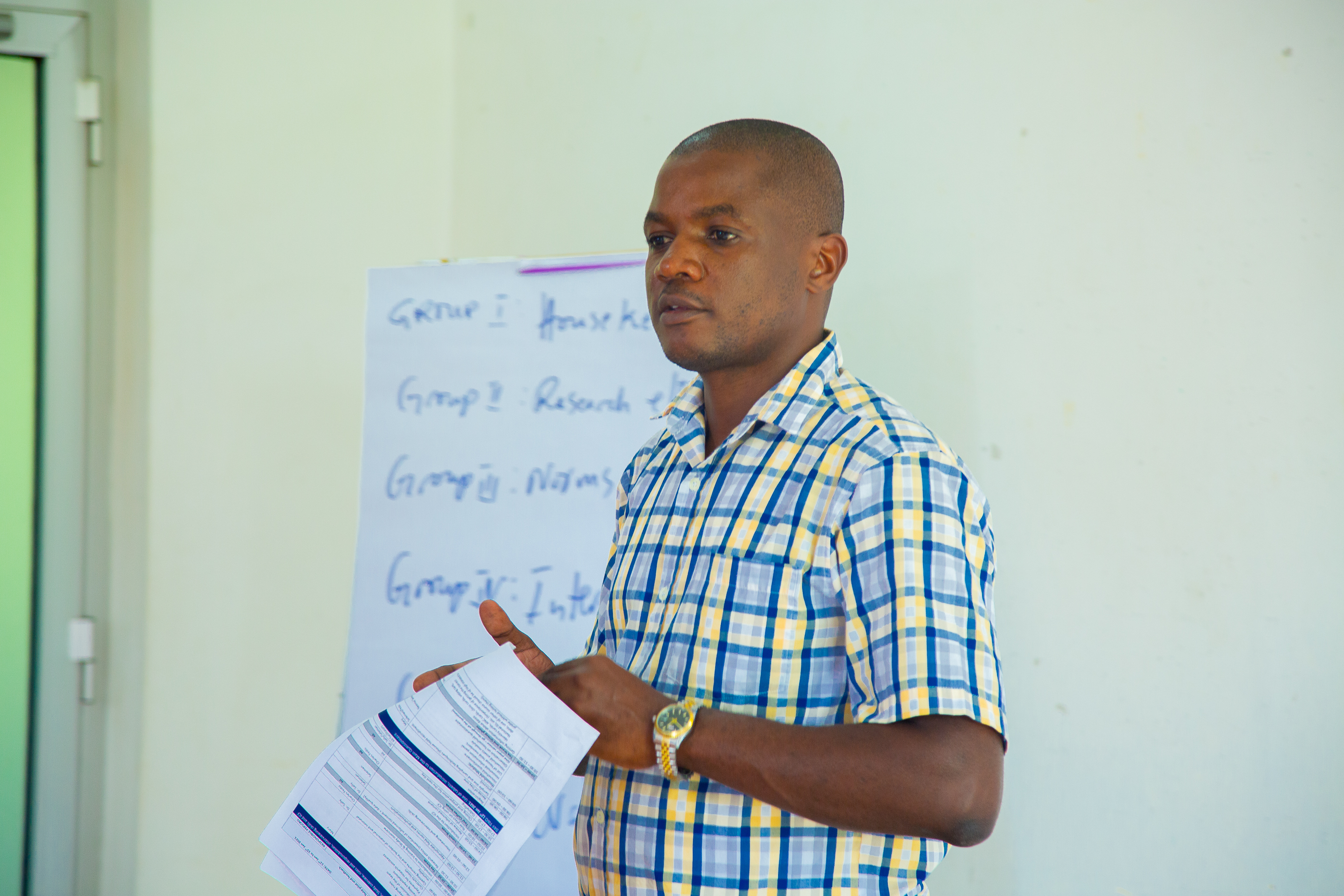
Tamani project builds capacity of its research support team

Ifakara Health Institute’s Tamani project, which is implemented in Tabora Region, has conducted training for its fieldworkers to prepare them for the next course of the study.
Tamani – for ‘Tabora Maternal Newborn Health Initiative’ – is implemented by Ifakara and other local and international partners for five years to improve women health and economic statuses.
The training was held for five days from January 11-15, 2021 at Kibaha Conference Centre in Kibaha.
Facilitators of the training include, senior social scientist and Principal Investigator, Dr. Sally Mtenga, senior data scientist Charles Festo, and data officers Neema Gamasa and Seleman Mbaga.
Some of the topics covered include: interviewing skills, the use of tablets in data collection, the women module birth history, and women experience in pregnancy and childbirth, quality of care and social status.
As part of the training, the participants had the opportunity to test their skills and tools in a pilot field work activity at selected locations in Kibaha and Bagamoyo.
More: About Tamani
The Tabora Maternal Newborn Health Initiative (Tamani) project is implemented in Tabora since January 2017 and scheduled to end by December 2021. Implementation of the project is led by Care Tanzania. CARE works in partnership with the Society of Obstetricians and Gynecologists of Canada (SOGC), the Association of Gynecologists and Obstetricians of Tanzania (Agota), the Canadian Society for International Health (CSIH), and McGill University’s Institute for Health & Social Policy. The Government of Canada provides funding for the project.
The project implementation activities have been happening in phases (two districts at a time) with the aim of promoting women’s economic empowerment and improving both the quality of reproductive, maternal, newborn health services available, and women and girls' access to health care in the region. The project team works closely with regional and district level health officials to effectively plan for, and deliver respectful and skilled reproductive health care, improve the skills of health care workers to effectively manage labour and delivery, and support communities to address local barriers that impede access to health care, especially for women and girls.
Ifakara Health Institute is an independent evaluator of the program implementation activities. The evaluation goal is to assess if the program has resulted into improved quality and utilization of reproductive, maternal, and new-born health care using a series of cross-sectional households’ surveys after each round of program implementation activities.
The baseline data collection was done in 2017. Follow up rounds of data collection were done in 2018 and 2019. The last round of data collection are planned for January and February 2021. #
